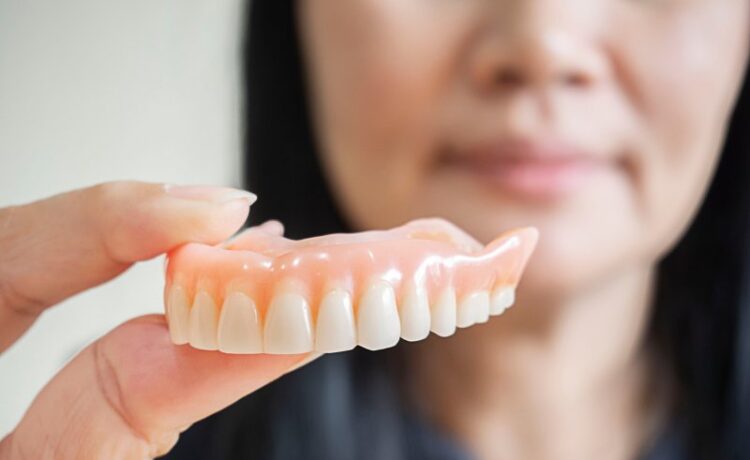Dentures can be a life-changing solution for those who are missing one or more teeth. They do not only improve your smile but give you a confidence boost. However, getting used to this dental equipment is not that easy. Many people experience new feelings and challenges during the adjustment period.
You will experience most of the major issues in the first week or initial days, and things start getting easier after that. If you have trouble speaking clearly, feel discomfort, or are forced to change how you eat, do not worry– it is completely normal. What is not normal is feeling excessive pain and discomfort. It is also a red flag if you experience any bleeding.
It is advisable to talk to your dentist and understand what you can expect so you know when something unusual happens. This blog will cover what you will probably experience in the first four weeks after getting dentures in Fontanta, CA.
Week 1: The initial adjustment phase
The first week is the initial adjustment phase. During this period, you may experience a range of sensations and discomfort. This may include a feeling of tightness or uneven pressure on your gums. This discomfort arises when your mouth adjusts to the newly installed dentures.
It is important to know that these feelings are only temporary and slowly fade with time. However, if the pain persists, visit your dentist immediately. You may also experience difficulty in chewing or speaking. Your new dentures may feel awkward, making it difficult to chew food properly or speak words clearly.
Doctors highly recommend eating soft foods, such as applesauce and yogurt, during this phase. Certain over-the-counter medications can help you manage pain, and applying a saline rinse can also help reduce discomfort.
Week 2: Finding a routine
In your second week, it is important to find a routine that improves the comfort and functionality of your dentures. You can also use denture adhesives to hold your dentures in place. However, make sure to use it correctly; otherwise, you might experience pain and irritation.
You will also feel a major improvement in your speech and eating habits. Moreover, you can improve your speech by practicing difficult words and phrases to increase the compatibility with your dentures.
Make sure to clean the dentures regularly. It helps maintain their appearance and functionality. This way, you can not only maintain daily oral hygiene but also avoid unpleasant smells associated with poor denture care.
Week 3: Increased comfort and confidence
By the third week, you will experience increased comfort and confidence in wearing your dentures. You may notice that you can also reduce your reliance on adhesives. As your gums get used to the new teeth, you can successfully wear your dentures without any adhesive.
You can start eating your favorite hard foods and speak more effortlessly. This change can boost your confidence and self-esteem with dentures.
It is important to make sure that your dentures fit well so you do not get any sores. However, if you experience any irritation, visit your dentist immediately for the necessary adjustments.
Week 4: Adjustments and follow-up care
As you enter the fourth week, it is important to visit your dentist for follow-ups. During this visit, dentists will examine the fit of the dentures and suggest necessary adjustments to ensure optimal comfort.
Do not hesitate to tell your dentist about any discomfort or fitting issues you are experiencing.
Over time, you will become more familiar with them and develop good denture habits. Dentists highly advise you to clean your teeth on a regular basis to avoid plaque buildup. Also, make sure to soak them overnight to maintain their shape and prevent them from drying.
Get a better smile today!
If you do not feel confident about your smile due to your missing teeth, it may be time for a change. Visit your dentist in Minnesota today!









